By Othman Sheriff, Editor, CEN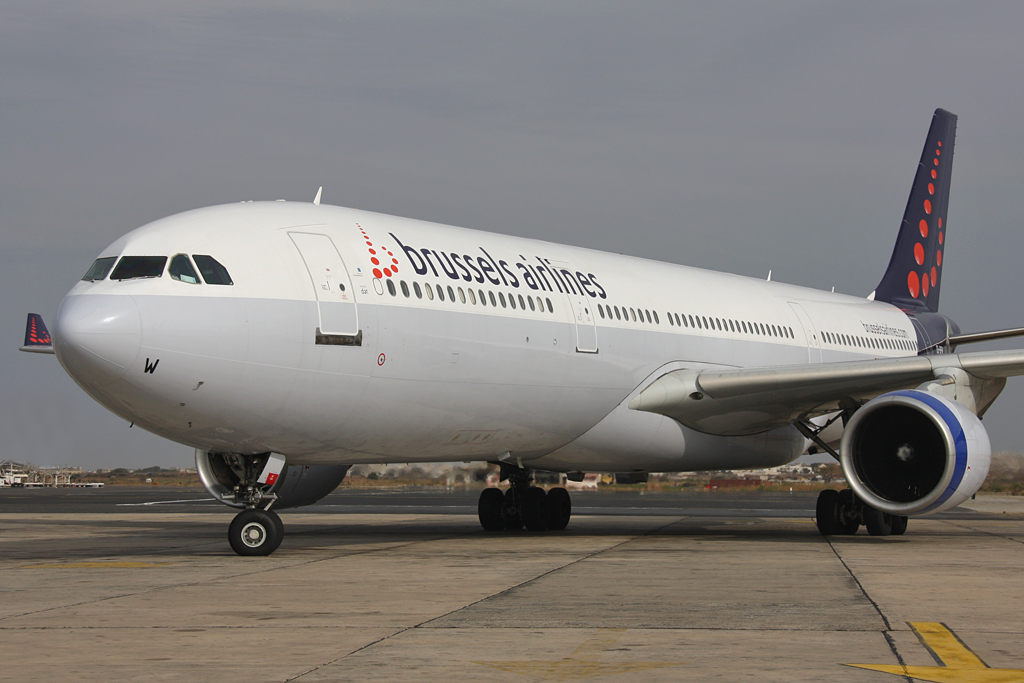
Though the tickets cost higher than the reckless, ill-managed Arab shuttle that usually arrive two weeks ahead of passengers’ personal effects, the economy class of SN Brussels was filled to capacity and the narrow seats made more uncomfortable by the turbulence that buffeted the plane. At the balcony seat sat a tall, slim guy with a dark spectacles that blocked his viewers from seeing what was actually in his eye sockets. Was he a blind man? Nobody knew. The curiosity was soon terminated by the screaming voice of a baby in its mother’s arm; other children whimpered swallowing cries of fear as parents smiled with tentative reassurance they did not feel. Some passengers were silent; few others were drinking their whisky more quickly than was obviously normal. Fewer others were still forcing laughter from their throat, false bravado that emphasized their insecurity rather than disguising it. Flight was not a new thing to many people but none escaped the essential thought of terror; especially when one found him/herself encased in a metal tube thousands of feet above the ground, everybody inside including the pilot was vulnerable.
SN Brussels is flying every hour of every day to diverse parts of the globe and this one was on its way to a land endowed with abundant natural resources that doesn’t benefit it owners but criminals whose bushy beards are sharper than a piassava brush and their baldheads stronger than the rock of Gibraltar. Some are Western crooks dressed in honest suits; some are should-be asylum-seekers from a very tinny land that is sandwiched between Tel-Aviv, Damascus and the Mediterranean Sea. Yes, there were two of them in the corner cunningly smiling to the bespectacled passenger. The passenger himself was called Kpanna’, a name that is very unique to the Mende ethnic group that is based in the east-southern part of Sierra Leone.
“Watin u sen for me Sir? You borbor dae na yao …, what do you have for me?; I’m here for you Sir”, was the voice that reassured Kpanna’’ of his arrival in the land that he belongs to. It came from one of the immigration personnel whose principle mandate was to check everything going through the reception including domestic animals. “How can he check me properly when he expect something from me? “ Kpanna’ asked sarcastically. He left the country fifteen years ago for Holland where he had been working laboriously in a pizza restaurant as a dishwasher. He never went to school as a result of the civil war that forced him out of the country. He didn’t even know his way to Freetown anymore; he was a real greenhorn (Munku, in Crio parlance) as far as life in his home country concerned.
As it’s always the case, a young female custom personnel quickly abandoned her post and yanked a trolley from the corner she had prepositioned it for hours in anticipation of SN Brussels, melted into the reception crowd posing to be Kpanna’s friend. “Here is a big trolley I have reserved for you, where is your luggage Sir?” she asked Kpanna’. “Reserved for me… How did you know I was coming…?” , murmured the new arrival. A ten Euro bill from Kpanna’s purse was enough to remove the woman from the terminal building down to the office of the Allied Marine – one of the best VIP crossover services this writer will elaborate on later in this piece. She had lost interest in her job, she was now interested in the Munku new arrival. This was the time Kpanna’ caught up with the Critique who had also arrived from Germany onboard SN Brussels and was about to board the VIP ferry. The two new arrivals sailed safe and direct to Government Warf, instead of the normal ferry terminal, from where vehicular traffic can embitter even a trip to a wedding party in the western part of the city. “Freetown, here I come!!” shouted Kpanna’.
Before leaving the Nederland, Kpanna’ was warned by a friend not to take a hard currency with him claiming that the check-in and out process at Lungi doesn’t leave a cent in a traveler’s pocket. He went to the city in the following morning with the hope of transacting with Lebanese businessmen using a credit card or travelers’ check (TC). A shopkeeper curiously glanced at him and rudely asked “are you a J.C?” “What does that mean”?, asked the new arrival. I mean you have “Just Come”. This is how Freetowneans call their compatriots who live at the diasporas.
Kpanna’ quickly phoned the Critique, the only man he knew could help him out. The Critique arrived at the scene half an hour later and then decided to let go all his beehive schedules in order to rescue Kpanna’ by accompanying him through the city. The time with Kpanna’ was rough, sometimes boring but very educative as the Critique, who doesn’t take a pace without pen and paper, decided to document every little lesson Kpanna’ learnt. The documentation began from arrival at the Lungi Airport, ferrying to Freetown, money conversion at PZ, bank transactions, clearing and forwarding of goods, customs and excise at the Queen Elizabeth II Quay, nightlife in the city and Lumley beach, transportation in the country side etc.:
The Lungi Airport
 Though trolleys are still being reserved by people for people without knowing each other, passengers being handpicked from the immigration inspection queue based on their name and pocket, non-travelers being allowed access into the luggage reception area, arrivals entering with unchecked luggage in exchange of few coins, but it’s high time to aloud some of the few positive changes that had taken place at the airport, particularly in the year 2011. The Critique can categorically confirm that though the ongoing refurbishment exercise at Lungi is a sharp contradiction to President Koroma’s airport relocation plan, it’s a positive move towards the right direction. The Critique could spot in far distance machines and laborers, both skilled and unskilled, working restlessly to refurbish the terminal and runways. The duty free shopping lounge is somehow comparable to that of Erfurter Airport, one of the German domestic airports in the Thuringia Capital of Erfurt. For a country that is still creeping in the ash and debris of a decade long civil war, this is a facelift for all its citizens, including the Critique.
Though trolleys are still being reserved by people for people without knowing each other, passengers being handpicked from the immigration inspection queue based on their name and pocket, non-travelers being allowed access into the luggage reception area, arrivals entering with unchecked luggage in exchange of few coins, but it’s high time to aloud some of the few positive changes that had taken place at the airport, particularly in the year 2011. The Critique can categorically confirm that though the ongoing refurbishment exercise at Lungi is a sharp contradiction to President Koroma’s airport relocation plan, it’s a positive move towards the right direction. The Critique could spot in far distance machines and laborers, both skilled and unskilled, working restlessly to refurbish the terminal and runways. The duty free shopping lounge is somehow comparable to that of Erfurter Airport, one of the German domestic airports in the Thuringia Capital of Erfurt. For a country that is still creeping in the ash and debris of a decade long civil war, this is a facelift for all its citizens, including the Critique.
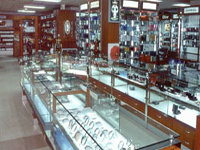 |
| A duty free shop at Lungi |
Lungi Airport, if compared with well-constructed airports like Murtala Muhammed International Airport in Lagos – Nigeria, or the Oliver Reginald Tambo Airport (O.R for short) in Johannesburg – South Africa, it’s one of the safest in the world in terms of luggage security.
As a result of the redevelopment that came with the Fifa World Cup 2010, the O.R airport has become, to many, the best in Africa south of the Sahara. However, what is happening to passengers behind the scene is the worst in African history. The Black Economic Power policy adopted over the years by the South African government as reparation to the black race for the apartheid nightmare they went through, didn’t only leave many white South Africans jobless, it also empowered many black criminals to occupy sensitive positions where they are robbing innocent people with impunity. The O.R Airport in Johannesburg is an undeniable spot. Every second luggage arriving at this airport will be tampered with and no one cares to ask why or who did it. I know a German tourist who visited Johannesburg twice last year and was robbed on each occasion; another one has sworn not to visit South Africa anymore after her entire luggage was stolen during check-in exercise. The Murtala Muhammed International Airport in Lagos has the same reputation.
Unlike the Lungi International Airport, the Critique visited Sierra Leone thrice in eight months’ time entering/exiting through Lungi and was never robbed at all. This means there is an improvement in the making compared to the last two year.
Ferrying to Freetown
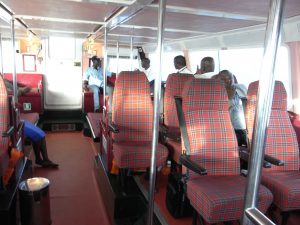 One of the best ferry services the Critique can recommend to every JC is the Allied Marine. The Allied Marine has a direct connection service that ensures the passenger’s safe arrival and on time. Instead of bothering a relative in Freetown to receive you at Lungi with a whole vehicle that might cost you about Le 200,000 plus the risk of boarding the normal ferry and the time wasted before you get home, the Allied Marine direct connection service picks you from the airport direct to Targrin where you will board the taxi ferry that sails you direct to Government Warf. Whiles in the hands of the well trained Allied Marine stewards, you will be served with a cost free cold drinks and music throughout the short journey. Unlike the big ferry whose captain once told the Critique that his official capacity is to see that there is no more space for an ant, the well-trained captain of Allied Marine knows the exact capacity of the ferry he sails and he doesn’t exceed it. The ferry also has onboard dozens of life jackets to protect passengers in case of unexpected sea disaster.
One of the best ferry services the Critique can recommend to every JC is the Allied Marine. The Allied Marine has a direct connection service that ensures the passenger’s safe arrival and on time. Instead of bothering a relative in Freetown to receive you at Lungi with a whole vehicle that might cost you about Le 200,000 plus the risk of boarding the normal ferry and the time wasted before you get home, the Allied Marine direct connection service picks you from the airport direct to Targrin where you will board the taxi ferry that sails you direct to Government Warf. Whiles in the hands of the well trained Allied Marine stewards, you will be served with a cost free cold drinks and music throughout the short journey. Unlike the big ferry whose captain once told the Critique that his official capacity is to see that there is no more space for an ant, the well-trained captain of Allied Marine knows the exact capacity of the ferry he sails and he doesn’t exceed it. The ferry also has onboard dozens of life jackets to protect passengers in case of unexpected sea disaster.
There was an unfortunate situation explained online by some newsmen wherein an Allied Marine ferry went off in the middle of the sea bra, bra, bra, but believe me, this story, if it’s true at all, was just an isolated incident.
There are also few other crossover services which a JC can use conveniently including the hovercraft. Even the NSSIT ferry, despite the controversies around it, it arrival has also helped to improve the situation.
Transacting with Banks in Freetown.
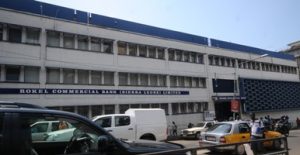 |
|
The only bank that accepts credit cards is
the Rokel Commercial Bank, but it also has a strange side of the story. |
The establishment of new banking institutions across the city is another good sign of a would-be prosperous Sierra Leone. However, some of those banks are sucking the hell out of the normal citizens hence the government is yet to put in place any effective monitoring and control mechanism that will ensure the safety of the ordinary customers.
For example, all banks in the city claim to be capable of buying and selling hard currencies, transact with credit cards such as American Express, Master Cards etc. but when you stand in front of their desks with a credit card, they will frown at you and say “we are working on it, it will be possible in six month time”. When you talk about foreign currency, some of them will accept it from you for cheaper cost but they don’t sell it to you. The only bank that accepts credit cards and buys or sells foreign currencies is the Rokel Commercial Bank, but it also has a strange side of the story.
Someday in mid-June the Critique accompanied Kpanna’, the Munku JC, to get some Leones from the Rokel Commercial Bank at Siaka Stevens Street using a credit card. While at the bank, a tall bank clerk with a perfectly knotted tie on the neck that left him a little chance to breath welcomed them with warmth. Few minutes later, questions and answers began revealing the open secrets behind credit card transactions at the bank. The banker brought a money requisition form which the credit card holder had to fill and sign based on which a telephone call was supposedly placed to the Africa customer care center in Nairobi, Kenya, in order to verify whether the card was authentic. This verification procedure, to the Critique, appeared to be a very good thing. What is loudly questionable however, is the verification method. Every reader will agree with the Critique that the Rokel Commercial Bank has no security device that can protect the phoning process from being tapped or harked by modern criminals using advanced technology. The Critique being an IT professional, knew that as long as the card number, name and contact address of the holder were read on the line he/she could be exposed to international criminals who have the capability and knowhow to duplicate credit cards within 24 hours.
|
Is the communication not a part and parcel of the service? Why is the bank holding customers responsible for its own failure to put in place a modern card verification technology? |
The other thing that raised the Critique’s eyebrows is the charges levied for the transaction. The card owner is charged for the call to Kenya even though he/she didn’t see or hear someone calling. Who knows whether it was just an SMS, or in fact, no such a call was made since there are many automatic ways of verifying credit cards without consulting a third party. The most dubious part of all is that even if the same customer fills the requisition forms ten times, he/she will pay the communication cost ten times. In addition to the telephone cost, the card holder pays some percentage to the bank as transaction fees plus the so called GST which purportedly goes to government coffer. Is the communication not a part and parcel of the service? Why is the bank holding customers responsible for its own failure to put in place a modern credit card verification technology?
No matter in which currency the credit card is banking, Rokel Commercial Bank will convert the requested sum into United States Dollars using their own rate and then buy it in Leones without any negotiation with the credit card holder.
As for travelers check, it automatically becomes an ordinary voucher once the holder landed with it in Sierra Leone. The Critique accompanied Kpanna’ for complete five hours to change a traveler’s check he had brought from Holland without success. Banks pays half of the value; foreign exchange bureaus don’t accept it; money changers don’t know it. Oh my God!
As the JCs walked quickly across Siaka Stevens street towards immigration headquarters, the Critique spotted one of the junior bank clerks rushing to one Mr. Bah, the most honest foreign currency dealer in the city center. “Wait for me, I will be back shortly”, he told Kpanna’. The Critique followed the bank clerk into Mr. Bah’s bureau as if he was going to transact as well. He could see the clerk removing bunches of Leones from his bag and exchanged it with United States dollar bills. The Critique quickly melted into the crowd and returned back to Kpanna’; he now knew what the game in the making was. The bankers have been transformed into smart money changers. They buy it very cheap and sell it very expensive on the pretext that it was the official bank rate. It’s easier for them. Many JCs and foreigners feels secured transacting with the banks, which gives them the chance to place them (the JCs) on the waiting bench till the footmen rush to the nearest money changer and buy the foreign currency or the other way round. No wonder why the bank rates are so unfavorable.
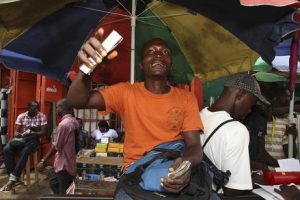 So the best thing the Critique can advise a JC to do is to take along your money in big notes. There is a little or no risk at Lungi to cross with your money. In fact the bigger the foreign note the higher the price at PZ. Try, if you can, to avoid the over-zealot money changers who almost break into your car with the question “na change Sir!” Most of them have nothing in the pockets. They are middlemen working for the real money changers on commission. Transacting with them in the streets exposes you to the danger of receiving counterfeit notes or being eye-marked by pickpockets. The true money changers are mostly Lebanese or Fulani businessmen/women who doesn’t move from their shops or bureaus. Or if you can’t avoid those over-zealot money changers at all, take one of them onboard your car to a far location where you might have friends or relatives around. Do not transact with them within the PZ area. Alternatively, you could collect a telephone number from one of them and phone him later to meet you at a neutral ground where you can feel secured. The farther they move from the city center the vulnerable they become to play any game.
So the best thing the Critique can advise a JC to do is to take along your money in big notes. There is a little or no risk at Lungi to cross with your money. In fact the bigger the foreign note the higher the price at PZ. Try, if you can, to avoid the over-zealot money changers who almost break into your car with the question “na change Sir!” Most of them have nothing in the pockets. They are middlemen working for the real money changers on commission. Transacting with them in the streets exposes you to the danger of receiving counterfeit notes or being eye-marked by pickpockets. The true money changers are mostly Lebanese or Fulani businessmen/women who doesn’t move from their shops or bureaus. Or if you can’t avoid those over-zealot money changers at all, take one of them onboard your car to a far location where you might have friends or relatives around. Do not transact with them within the PZ area. Alternatively, you could collect a telephone number from one of them and phone him later to meet you at a neutral ground where you can feel secured. The farther they move from the city center the vulnerable they become to play any game.
Our next episode shall focus mainly on clearing and forwarding, customs and excite, and the risk you challenge when transacting with quack agents at water quay. Visit us regularly at CEN…


Good, CEN » The Munku JC in Freetown, a Lesson for Every Diasporean.
I do love the way you have presented this issue and it does give me personally some fodder for consideration. Nevertheless, through what precisely I have witnessed, I just trust when the feedback stack on that folks keep on point and don’t embark on a tirade involving some other news du jour. All the same, thank you for this fantastic point and while I do not necessarily concur with this in totality, I respect your perspective.
I impressed, I should say. Actually hardly ever do I encounter a weblog that each educative and entertaining, and let me let you know, you have got hit the nail on the head. Your concept is outstanding; the difficulty is something that not enough people are talking intelligently about. I am very glad that I stumbled across this in my search for something regarding this.
Thanks for shearing this kind of episode.Its a shame for bankers to be in this habbit.Are they not paid for their job? All the time poeple are pick-pocketed or whatever.So who do we have to believe/trust in monetry transactions in our country. A credit card could be the best to travell with but you cant get your money as epected.OH GOD,HELP OUR COUNTRY REFRAIN FORM THESE UGLY HABBITS!!!!! If only exposed as you are doing, it'll be better.We'll start recording their actions secretly and post them on TVs. I can have a camera like a button on my shirt,or like an earing,watch etc.It would be a big disgrace if anyone is seen on TV with these attitde,we got to stop,stop and stop!!! Even in Govt.offices we'll introduce them for corruption to be eased.
Hey the Critique,
This is one of your best articles in the past months. I love the way you framed some of the paragraphs and belive you me, it will help a lot of diasporeans including those living in your country (Germany). Do you know that this is a real lesson for certain people? The headline just fell in place. Ojectivity is one the things that makes me read your pieces over and again without feeling bored. Please keep on the good job…you are a real patriot,
Greetings,
M.J, Italy
inspiring insights you’re sharing. I love the way you are sharing it. Is there any way I could get updated for much more?
Usually I do not read post on blogs, even so I would like to say that this write-up really forced me to take a look at and do so! Your writing taste has been surprised me. Thank you, quite great post.